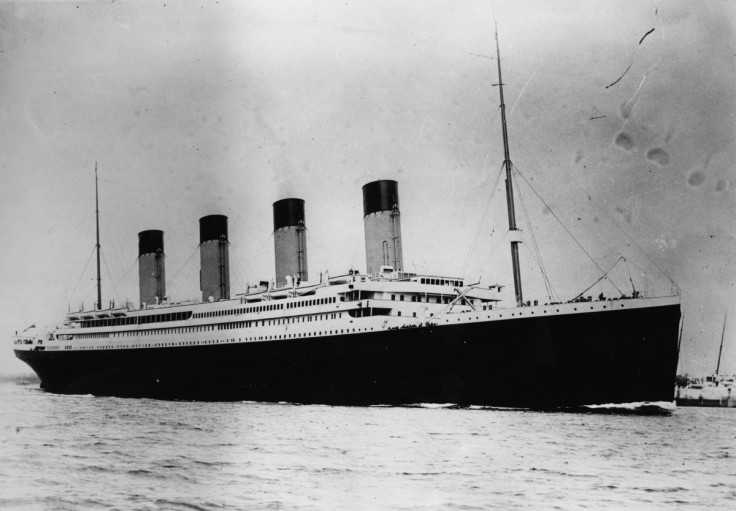Fire on Titanic before launch may have been a major cause of its sinking – new research
Rare photos suggest that the ship's hull may have been weakened by the blaze.

The collision with an iceberg may not have been the sole reason behind the fateful sinking of the RMS Titanic as it made its way from Southampton to New York in April 1912, a new report suggests. Experts now claim that a large fire on board the vessel may have been responsible for the weakening of the hull.
Senan Molony, a journalist with the Irish Daily Mail, who has spent more than 30 years researching the sinking of the Titanic, studied photographs taken by the ship's chief electrical engineers before it left Belfast shipyard. Using them he was able to identify 30ft-long black marks along the front right-hand side of the hull.
"We are looking at the exact area where the iceberg stuck, and we appear to have a weakness or damage to the hull in that specific place, before she even left Belfast," Molony said of the revelation in the documentary film Titanic: The New Evidence which aired on 1 January.
Experts have also confirmed that the scorch marks could have been caused by a fire which may have started in a three-storey high fuel store behind one of the ship's boiler rooms. They believe that the blaze may have gone unnoticed for close to three weeks before the historic collision with the iceberg which led to death of more than 1,500 passengers and crew.
In the documentary, Maloney explains that efforts to put out the flames were unsuccessful as it reached temperatures of up to 1,000C as it grew out of control. J Bruce Ismay, president of the company that built the Titanic reportedly told the ship's officers not to mention the fire to any of the passengers.
"The official Titanic inquiry branded [the sinking] as an act of God. This isn't a simple story of colliding with an iceberg and sinking. It's a perfect storm of extraordinary factors coming together: fire, ice and criminal negligence," he mentioned.
"Nobody has investigated these marks before. It totally changes the narrative. We have metallurgy experts telling us that when you get that level of temperature against steel it makes it brittle, and reduces its strength by up to 75%. The fire was known about, but it was played down. She should never have been put to sea."
Maloney is not the first researcher to suspect a fire of being a major reason for the sinking of the Titanic. In 2008, another expert with over 20 years of research into the Titanic, Ray Boston, opined that the coal fire could have started as early as 10 days before the ship's departure from Southampton and had the potential to cause "serious explosions" during the journey to New York.
© Copyright IBTimes 2025. All rights reserved.






















